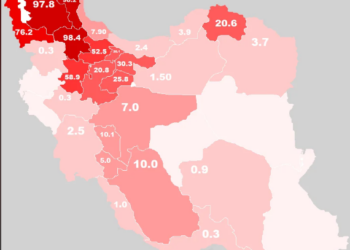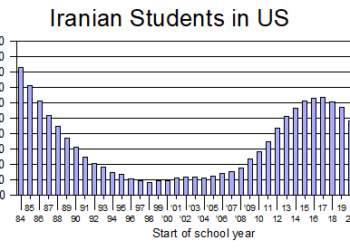the African continent, Monday ordered all Iranian nationals working for the Iranian government to leave in 48 hours, severed diplomatic relations and halted all aid projects Iran had under construction. Gambia gave no explanation for its sudden action. But it was widely assumed to be linked with a shipment of arms destined for Gambia that have been seized in Nigeria.
One line of speculation held that Iran was shipping arms to some rebel group in Gambia and the government was furious with Tehran. But there are no known rebel groups operating in the country and relations between the two countries have appeared quite good.
Another line of speculation held that Gambia had bought the weapons in question, despite a UN ban on any purchase of arms from Iran, and was mounting a great public show of concern in order to cover up its actions and pose as the injured party. But that would be damaging to Iran and likely end Iran’s aid to Gambia. In sum, no one really knows what is going on and speculation is rife. When Nigeria first uncovered the arms, it suspected they were meant for rebels in Nigeria. The Israeli media quickly assumed the arms were passing through Nigeria and were bound for Hamas.
President Ahmadi-nejad visited Gambia in 2006 and again in 2009 and has been supplying the government there with various forms of aid. Col. Yahya Jammeh seized power in Gambia in a coup in 1994. He has won elections since then that appear to have been reasonably fair. In March 2006, he said he had put down an attempted military coup. The country is about 90 percent Muslim, but there is no state religion. The Gambian Foreign Ministry issued a statement Monday that said, “All Government of The Gambia projects and programs, which were implemented in cooperation with the Government of the Islamic Republic of Iran, have been canceled.” It went on to say that relations had been severed and that all Iranian nationals working for the Iranian government—not just diplomats—had to leave within 48 hours.
The announcement’s concern about stopping development projects and booting out the Iranians working on those projects raised questions as to whether Gambia suspected something illicit was happening under the guise of those projects. Gambia was once a British colony and its official language is English, though a multiplicity of tribal tongues are spoken in the villages. A large number of African- Americans are descended from the tribes in that part of Africa. Modern Gambia is, however, very small and snakes along the banks of the Gambia River. It comprises land about 10 miles deep on either side of the river. It is crowded with a population of about 1.7 million. On the UN vote to censure Iran for human rights violations last year, Gambia abstained. But last week, on the 2010 resolution, Gambia voted aye. That vote was taken after Nigeria had said the 13 containers of arms were intended for Gambia. Gambia has been totally silent about the arms. An Iran Times check last week of news stories published in the country’s two main newspapers showed they had carried no stories about the arms seized in Nigeria, suggesting the Gambian government had forbidden publication of any such news. In Tehran, Deputy Alaeddin Borujerdi, chairman of the Majlis National Security Committee, said the arms were being shipped by a private company to Gambia “in line with international laws.” But since the 2007 UN sanctions resolution bars any Iranian arms exports, such a shipment would not be “in line with international laws.” Borujerdi said Gambia had been forced to sever its ties with Iran by the United States, the usual bogeyman blamed by the Islamic Republic when something it does not like occurs. The official Gambian government statement was silent on the cause of the rupture. Habib Jarra, permanent secretary of Gambia’s Foreign Ministry, was asked by the Associated Press about the arms and he denied they were the reason for severing ties, though he declined to give any explanation. The AP quoted an unnamed senior Gambian security official as telling its reporter the decision to sever ties was taken because of the arms shipment. The arms were shipped from Bandar Abbas to Lagos, Nigeria, several weeks ago. The containers were left in the port, which is not uncommon in Nigeria, but were watched by security officials who had received an intelligence report that arms were in the containers. Earlier this month, the shipper filed paperwork to reload the containers and move then to Banjul, the capital of Gambia. Nigerian police then seized the containers and found them packed with weapons. The largest weapon was reportedly 107mm artillery rockets. Nigeria continues to say that the arms shipment is under investigation. It says it has been allowed by Iran to question an Iranian man who fled to the Iranian embassy in Nigeria when the shipment was seized.


















